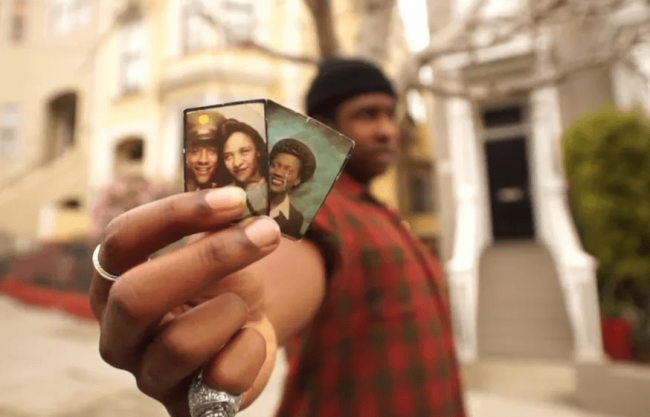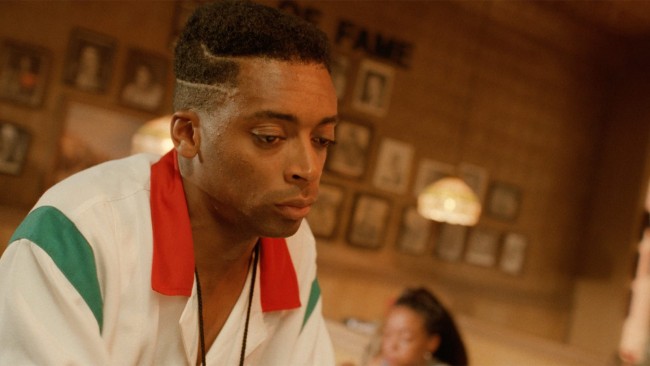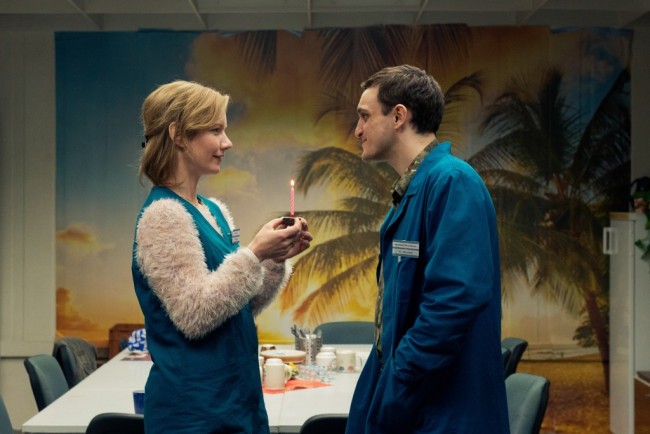Movie City Indie Archive for June, 2019
Friday Movies: LAST BLACK MAN IN SAN FRANCISCO; DO THE RIGHT THING; ROLLING THUNDER REVUE; DEAD DON’T DIE; GARRY WINOGRAND; IN THE AISLES

 The Last Black Man In San Francisco. Some movies you walk into knowing nothing and upon leaving, you feel in at least some way you know everything. Joe Talbot’s luminous, mesmeric The Last Black Man In San Francisco is a temporal-topographical dreamspace of sweet hallucination. Its characters’ wants are simple: Jimmie (Jimmie Fails) wants a Victorian home built long ago by his grandfather in the heart of San Francisco. [Read more.]
The Last Black Man In San Francisco. Some movies you walk into knowing nothing and upon leaving, you feel in at least some way you know everything. Joe Talbot’s luminous, mesmeric The Last Black Man In San Francisco is a temporal-topographical dreamspace of sweet hallucination. Its characters’ wants are simple: Jimmie (Jimmie Fails) wants a Victorian home built long ago by his grandfather in the heart of San Francisco. [Read more.]
 Do The Right Thing.“Well, here’s the thing, though,” Spike Lee said way back in February 2019, promoting BlacKkKlansman via Politico, “and this is the biggest criticism of Do the Right Thing: ‘Spike Lee, he didn’t provide the answer to racism! To prejudice!’ That was 1989, and I’m not going to start in motherfucking 2019. That’s not my job. To show what the fuck is happening. And hopefully, through dialogue or whatever, people see what the hell is going on. But I will not sit in front of this microphone staring at the Capitol Building and tell you that Spike Lee has an antidote to cleanse the world of hate, and racism. I won’t do that. It’ll be a lie. I don’t have the answer.” Here’s a question though: have you seenDo the Right Thing”? Have you seen Do the Right Thing recently? Here’s your chance to see it in 35mm, a startling, electric creative dispatch from yesterday, and maybe even the future. [Read more.]
Do The Right Thing.“Well, here’s the thing, though,” Spike Lee said way back in February 2019, promoting BlacKkKlansman via Politico, “and this is the biggest criticism of Do the Right Thing: ‘Spike Lee, he didn’t provide the answer to racism! To prejudice!’ That was 1989, and I’m not going to start in motherfucking 2019. That’s not my job. To show what the fuck is happening. And hopefully, through dialogue or whatever, people see what the hell is going on. But I will not sit in front of this microphone staring at the Capitol Building and tell you that Spike Lee has an antidote to cleanse the world of hate, and racism. I won’t do that. It’ll be a lie. I don’t have the answer.” Here’s a question though: have you seenDo the Right Thing”? Have you seen Do the Right Thing recently? Here’s your chance to see it in 35mm, a startling, electric creative dispatch from yesterday, and maybe even the future. [Read more.]
Rolling Thunder Revue: A Bob Dylan Story By Martin Scorsese. “That’s all clumsy bullshit,” the elder Bob Dylan says at the outset of the thrilling put-on and picaresque “Rolling Thunder Revue: A Bob Dylan Story By Martin Scorsese.” Scorsese’s own opening gambit is a slap of turn-of-the-twentieth century special effects by Georges Méliès, of disappearance-reappearance special-effects prestidigitation: you see the body; the form is obscured; the body returns. (A form of Gypsy Rose Lee’s key rule for the stripper’s calling, if you will: reveal, conceal.) [Read more.]
The Dead Don’t Die. Jim Jarmusch’s zombie apocalypse “The Dead Don’t Die” is a simmering if relaxed addition to his canon of understated pictures. Reviewers have roundly misunderstood its genial but not ineffectual slapstick and low japery (especially after the placid tonal mastery of “Paterson”). “Dead Don’t” is both a shrug and a muffled howl of rage that cannot find catharsis. “It definitely has a sociopolitical thread in it, which is reflective and therefore dark,” Jarmusch told Bilge Ebiri at Vulture. “But hey, everyone, wake up! We’re in the sixth mass extinction on this planet. To not have that darkness would have been a little superficial.[Read more.]
Garry Winogrand: All Things Are Photographable. Curator John Szarkowski called Garry Winogrand “the central photographer of his generation”; Winogrand called himself “a city hick from the Bronx.” Sasha Waters Freyer’s rich, bustling documentary, “Garry Winogrand: All Things Are Photographable” (Kino Lorber DVD), captures the vitality of this street photographer eye-omnivore and the range of what the world at large transmitted to his roving gaze. [Read more.]
In The Aisles.Through tenuous romance and observant details, which the film’s producer nods to as “poetic realism,” Thomas Stuber offers a showcase for the charm and emotional range of his actors, including Franz Rogowski (Transit) and Sandra Hüller (Toni Erdmann) whose flirtations start and stop and perhaps start again. The fragrance of the everyday rises without perfume. [Read more.]











